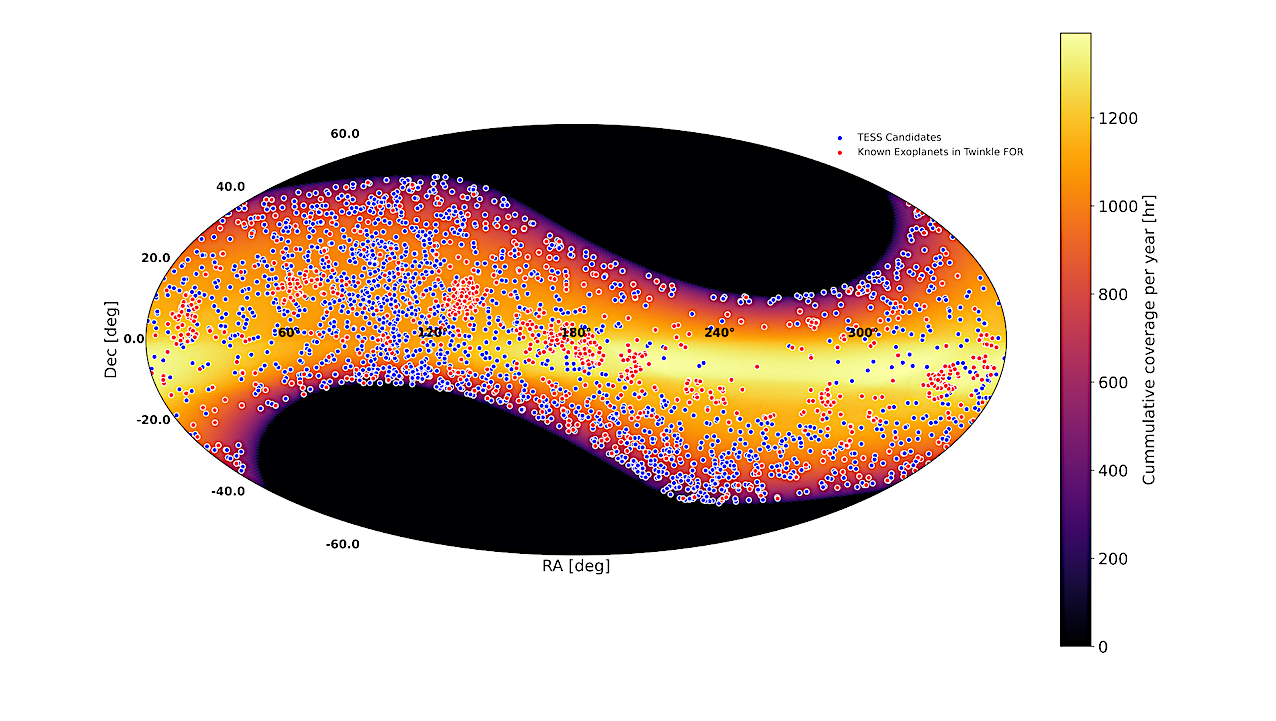The sweep of Twinkle’s FOR and location of currently known exoplanets (red) and TESS objects of interest (blue). — astro-ph.IM
The Twinkle Space Telescope is a satellite designed for spectroscopic observations of a wide range of extrasolar and solar system objects.
Equipped with a 0.45 m diameter telescope and a spectrometer covering from 0.5 to 4.5 microns simultaneously, Twinkle will be launched in a sun-synchronous, low-Earth orbit, and it is expected to operate for seven years.
Twinkle is developed, managed and operated by Blue Skies Space (BSSL), a space science data company whose vision is to accelerate and expand the availability of new, high-quality datasets to researchers worldwide, complementing the space observatories delivered by government space agencies.
Over its lifetime, Twinkle will conduct large-scale survey programs. The scientific objectives and observational strategy of these surveys are defined by researchers who join the Science Team.
Leveraging advances made possible by recent observations with the James Webb Space Telescope, we present here updated simulations evaluating Twinkle’s observational capabilities in the context of exoplanet atmospheres.
Through retrieval analyses of HD 209458 b, WASP-107 b, GJ 3470 b, and 55 Cnc e, we demonstrate how increasing observational investment enhances the retrieval of atmospheric parameters and molecular abundances. Our sensitivity study highlights Twinkle’s capability to detect less abundant or less detectable molecules depending on the observing strategies adopted.
This work provides practical guidance for developing targeted observational strategies to maximise Twinkle’s scientific return.
Tailong Zhang, Benjamin Wilcock, Sushuang Ma, Giovanna Tinetti, Lawrence Bradley, Marcell Tessenyi, Jonathan Tennyson
Subjects: Instrumentation and Methods for Astrophysics (astro-ph.IM); Earth and Planetary Astrophysics (astro-ph.EP)
Cite as: arXiv:2508.10386 [astro-ph.IM] (or arXiv:2508.10386v1 [astro-ph.IM] for this version)
https://doi.org/10.48550/arXiv.2508.10386
Focus to learn more
Submission history
From: Tailong Zhang
[v1] Thu, 14 Aug 2025 06:41:48 UTC (16,940 KB)
https://arxiv.org/abs/2508.10386
Astrobiology,
